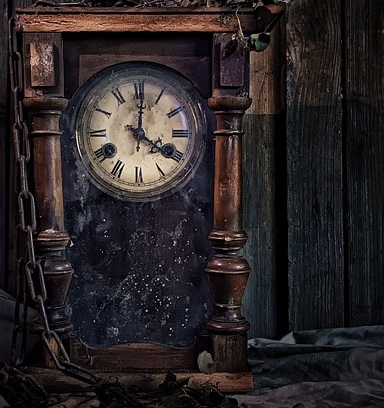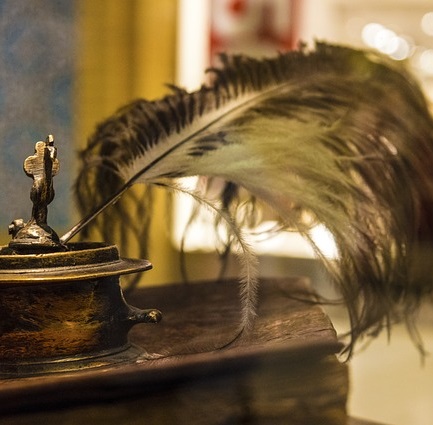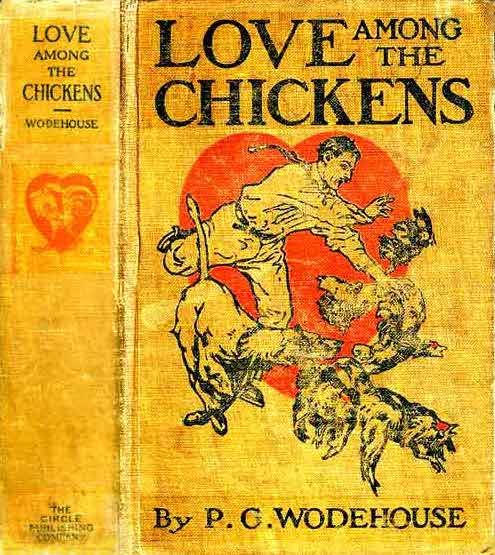
by Richard Subber | Sep 1, 2024 | Language, My poetry, Poetry
The Book of Days
The dawn’s early light can be pleasure enough for the whole day.
There are words enough to tell the story of “the temptation of day to come.”
It is my delight to write some of them for your delectation.
ciel rouge
A bacon sky,
some heightened reds,
a cloudy froth,
the day is nigh.
May 15, 2024
sometimes color is the main clue…
* * * * * *
My poetry. Copyright © Richard Carl Subber 2024 All rights reserved.
Book review: Lafayette by Harlow Unger
He was a great man. Also rich and lucky.
–
Above all: Poems of dawn and more with 73 free verse poems,
and the rest of my poetry books are for sale on Amazon (paperback and Kindle)
and free in Kindle Unlimited, search Amazon for “Richard Carl Subber”
Your comments are welcome—tell me what you’re thinking.
* * * * * *

by Richard Subber | Aug 24, 2024 | Book reviews, Books, Books Commentary, Joys of reading, Language
…a “man of letters”…
Book review:
Literary Life: A Second Memoir
by Larry McMurtry (1936-2021)
Simon & Schuster, 2009
McMurtry moves me to want more, read more…
It’s incredibly easy to read McMurtry—I’ve read Books: A Memoir, Walter Benjamin at the Dairy Queen, and now Literary Life. Time after time, it seems that he writes in an off-hand way; thoughts and scenes and chapters can end very abruptly. Yet, the work seems polished. The prose is spare, as Larry acknowledges.
I am titillated by his familiar references to so many authors and works. I would love to be a “man of letters,” as McMurtry claims to be. The draw for me is McMurtry’s immersion in books. I would be thrilled to own 200,000 books. Desperately thrilled.
I’m pretty sure that McMurtry’s passionate engagement with books and authors is a believable lifestyle. His many references to re-reading books is a believable commitment.
Since I retired nearly 20 years ago, I have, from time to time, envisioned taking the pledge to read the entire oeuvre of an author I like. Now I am moved to read McMurtry’s books. I plan to re-read Books and Literary Life to get clues about how to read them. I’ll consider reading his works in order by pub date, except for the Lonesome Dove and Berrybender tetralogies, of course.
I don’t think I’ll be disappointed.
* * * * * *
Book review. Copyright © Richard Carl Subber 2024 All rights reserved.
Will the last monkey cry?
the new reality…
Above all: Poems of dawn and more with 73 free verse poems,
and the rest of my poetry books are for sale on Amazon (paperback and Kindle)
and free in Kindle Unlimited, search Amazon for “Richard Carl Subber”
* * * * * *

by Richard Subber | Aug 10, 2024 | Language, My poetry, Poetry, Reflections, Tidbits
a chime in the dark
Another time
That single chime,
sometime in night,
there is no rhyme,
try as I might
I cannot conjure
a dancing wight
who sings that tune,
no song sublime,
no twist of rune
that I can write.
I let the chime expire,
I savor it entire,
perhaps Great Pan
may favor it
to puff his pipes,
and thrill the mime
in pagan rite,
in distant time.
May 8, 2024
* * * * * *
My poetry. Copyright © Richard Carl Subber 2024 All rights reserved.
Book review: An Empire Divided
King George and his ministers
wanted the Caribbean sugar islands
more than they wanted the 13 colonies…
by Andrew Jackson O’Shaughnessy
–
My first name was rain: A dreamery of poems with 53 free verse and haiku poems,
and the rest of my poetry books are for sale on Amazon (paperback and Kindle)
and free in Kindle Unlimited, search Amazon for “Richard Carl Subber”
Your comments are welcome—tell me what you’re thinking.
* * * * * *

by Richard Subber | Aug 4, 2024 | Book reviews, Books, Joys of reading, Language
“Each work is new.”
Book review:
The Eye of the Story: Selected Essays and Reviews
by Eudora Alice Welty (1909-2001)
American short story writer and novelist, Pulitzer Prize winner
New York: Random House, 1977
355 pages
The Eye of the Story is lush, literate, filled with almost languid richness.
I can only imagine being so well read that I could recognize all of her references to other writers and the vast literature of novels and short stories. I envy the breadth of her engagement with the world of fiction.
I’m more interested in what she has to say about writing.
“We who encounter words used in certain ways are persuaded by them to be brought mind and heart within the presence, the power, of the imagination” (p. 134).
“Each work is new” (p. 135). Welty is talking about novels, but this also is true, so true, of poetry. She observes that, in the fiction of her contemplation, “words have been found for which there may be no other words” (p. 137).
“The imagination has to be involved, and more—ignited. How much brighter than the symbol can be the explicit observation that springs firsthand from deep and present feeling…” (p. 139).
“It is through the shaping of the work in the hands of the artist that you most nearly come to know what can be known, on the page, of his mind and heart, and his as apart from the others. No other saw life in an ordering exactly like this” (p. 144).
I find affirmation in The Eye of the Story. Welty declares that writing is an art that uses the literally infinite array of words in sequence to create a spectacular, unique exhibition of what’s in the writer’s mind and in her heart.
“Each work is new.” I believe that each poem is unique. Each engaged reader takes a new step on new ground each time he reads the poem.
The poet opens a new window in her mind each time she takes the quill in hand.
* * * * * *
Book review. Copyright © Richard Carl Subber 2024 All rights reserved.
A poem about the right thing
…and the lesser incarnation…
“Vanity”
In other words: Poems for your eyes and ears with 64 free verse and haiku poems,
and the rest of my poetry books are for sale on Amazon (paperback and Kindle)
and free in Kindle Unlimited, search Amazon for “Richard Carl Subber”
* * * * * *

by Richard Subber | Jul 11, 2024 | American history, Book reviews, Books, History, Language
This is good storytelling
Book review:
The Brothers
Janet M. Kovarik
2014
If you’re a student of the Civil War, you’ll recognize the actual historical figures who are part of the story, and you’ll quickly feel comfortably familiar with Stu and Beau and Sarah and their families, because they embody some of the compelling human agents of the wartime drama.
These characters are three-dimensional. There is human urgency in their speech and actions. These are cerebral characters who are articulately reflective, thoughtful about their circumstances and their life journeys, and passionate about love and rectitude and their personal legacies and futures.
The Brothers is the first novel in The McCullough Saga. The twins, Beau and Stu, have explicitly distinct personalities but their lives have remarkably similar if unconventional trajectories. They are the central figures in a human story, on a human scale, with a conspicuously realistic historical setting. Storm Haven, their deep South plantation, is convincingly researched, as are the gritty battle scenes, the economics and logistics of the war, the arduous success of the Underground Railroad and the delights of antebellum southern cuisine.
The Brothers is a dialogue-rich offering of historical fiction. I’m a dialogue fan. This is good storytelling.
* * * * * *
Book review. Copyright © Richard Carl Subber 2024 All rights reserved.
The Unknown American Revolution (book review)
in the streets, says Gary Nash
Above all: Poems of dawn and more with 73 free verse poems,
and the rest of my poetry books are for sale on Amazon (paperback and Kindle)
and free in Kindle Unlimited, search Amazon for “Richard Carl Subber”
* * * * * *

by Richard Subber | Jul 7, 2024 | Book reviews, Books, Human Nature, Joys of reading, Language
Who doesn’t love Bertie Wooster?
I happened on a 1982 review of a biography of P. G. Wodehouse, and I can’t resist believing that the reviewer is a hatefully well-bred person.
Prof. Samuel Hynes very incautiously permits himself to label old P. G. as
” . . . the greatest trivial novelist in literary history . . .”
Egad.
Is he talking about Sir Pelham Grenville Wodehouse (1881-1975), the remarkably gabby genius who created Bertie Wooster and Jeeves?
Is he talking about the guy who makes us love the incurably erratic Wooster? who makes us worshipfully respect the very properly domineering Jeeves who can’t hurt a fly, knows nearly everything and saves Bertie’s bacon every time? who makes us stiffen, suppressing cries of delight, as we absorb the adjectival artistry of the whole bloody Wooster/Jeeves madhouse?
Hynes goes so far as to declare that Wodehouse “created a world without real problems and without human depths.” If you’ve read any of Wodehouse’s work, you know that ain’t true. There’s a bit of Bertie’s passion and despair in all of us, and Jeeves divinely makes it possible for everyone around him to be human.
There’s just one word too many in Hynes’ summary of Sir P. G. Wodehouse: “the greatest trivial novelist.”
I think you can guess which one it is.
If you want to, click here to read all of Hynes’ comments about Frances Donaldson’s 1982 biography, P. G. Wodehouse.
* * * * * *
Book review. Copyright © Richard Carl Subber 2024 All rights reserved.
Home Team: Poems About Baseball (book review)
Edwin Romond easily hits another homer…
Writing Rainbows: Poems for Grown-Ups with 59 free verse and haiku poems,
and the rest of my poetry books are for sale on Amazon (paperback and Kindle)
and free in Kindle Unlimited, search Amazon for “Richard Carl Subber”
* * * * * *





